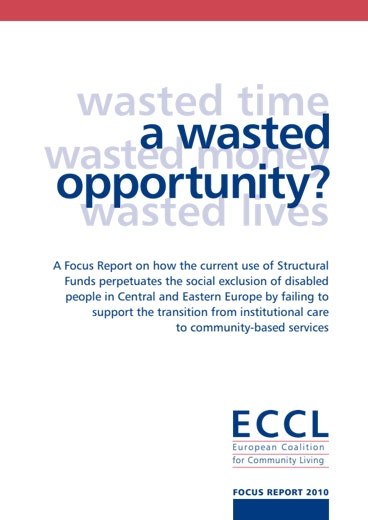The European Commission issues Structural Funds as part of its regional policy to promote economic and social cohesion in the European Union. These very substantial funds (about a third of the total EU budget) have the potential to make a significant positive impact on the lives of people with disabilities in Central and Eastern Europe.
Yet, as documented in this report by the European Coalition for Community Living, instead of supporting community-based programs for people with disabilities, countries are using the funds to maintain large, archaic institutions. Segregating people with disabilities further perpetuates social exclusion and runs contrary to EU policies that guarantee the right of disabled people to live and participate in communities.
The report examines the use of Structural Funds in Hungary and Romania. In Romania, nearly 70 percent of residents remain in institutional care until they die. Less than 15 percent are ever reintegrated into society.
By maintaining these institutions, governments are in violation of the UN Convention on the Rights of Persons with Disabilities, which states that the segregation of disabled people in institutions is a severe infringement of their rights. Institutionalization is also contrary to the policy objectives of both the EU and the Council of Europe, which seek to promote community living. Furthermore, institutional care reinforces the long-standing and pervasive prejudice and discrimination against disabled people.
The report outlines a number of key actions that should be taken by EU Member States and the European Commission, such as funding the implementation of social inclusion policies established at the national, regional, and international level.
A Wasted Opportunity? was produced with financial support from the Open Society Mental Health Initiative.
Download
-
A Wasted Opportunity?: Wasted Time, Wasted Money, Wasted Lives (396.64 Kb pdf file)
Download the full report.
-
A Wasted Opportunity: Executive Summary (226.61 Kb pdf file)
Download the executive summary.
